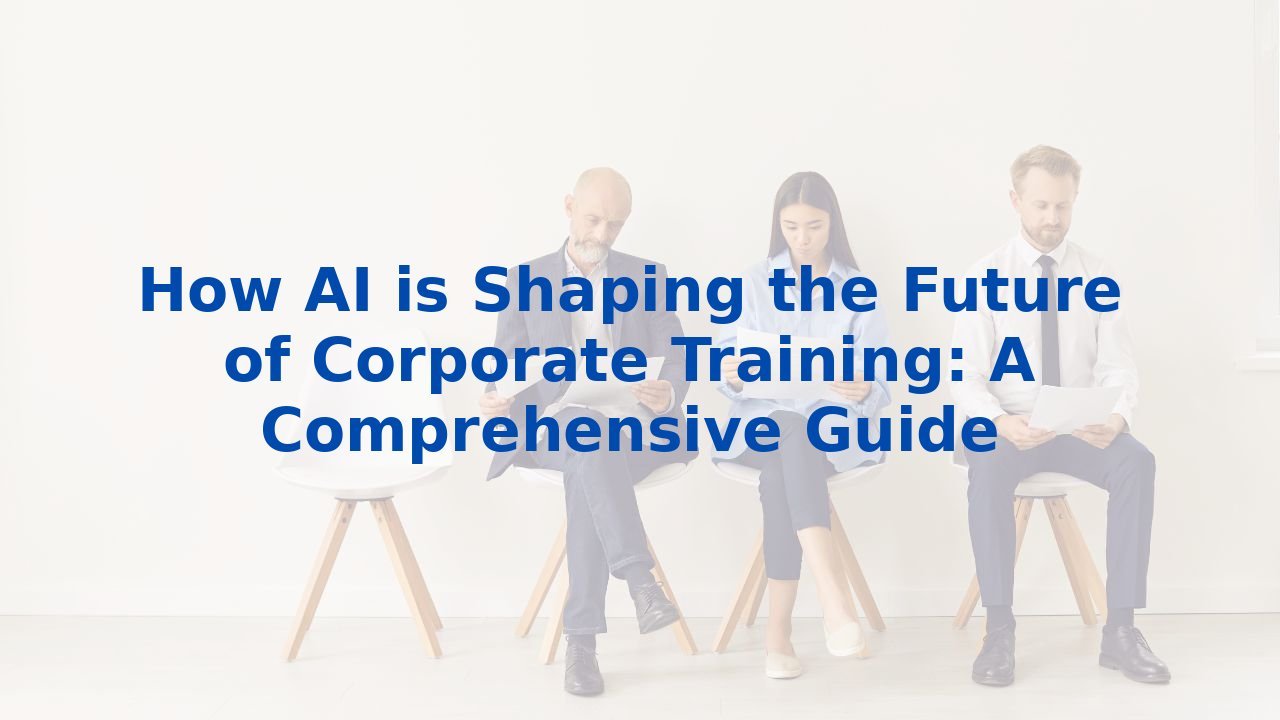How AI is Shaping the Future of Corporate Training: A Comprehensive Guide
How AI is Shaping the Future of Corporate Training: A Comprehensive Guide
The corporate training landscape is not just changing; it's evolving at an unprecedented pace, primarily due to the integration of artificial intelligence (AI) into training strategies. This transformation hints at a future where corporate education becomes more personalized, efficient, and impactful. Today, we’ll explore how AI is reshaping the training paradigm and what this means for organizational efficiency and employee development.
The Impact of AI on Corporate Training
AI isn't a mere enhancement—it's a game-changer. By streamlining how training programs are conceptualized, delivered, and assessed, organizations can create an environment where learning becomes seamless. Here’s how AI is making its mark:
- Personalization: One of AI's most powerful capabilities is its ability to tailor training experiences. By analyzing individual employee data, AI can customize programs to suit specific needs and preferences, ensuring relevancy and engagement.
- Efficiency: By automating mundane administrative duties like scheduling and tracking progress, AI allows Learning and Development (L&D) professionals to redirect their energies toward crafting high-quality, innovative training content.
- Scalability: Whether it’s a small team or a large enterprise, AI enables organizations to easily scale training initiatives without loss of quality, making it an invaluable asset for growth-oriented companies.
- Cost Savings: With the automation of content creation and delivery, companies can significantly cut training costs while still delivering impactful learning experiences.
Benefits of AI in Corporate Training
The transformative potential of AI brings a myriad of benefits to the corporate training landscape. Here’s an in-depth look at some compelling advantages:
- Cost Reduction and Time Efficiency: Automating tedious tasks not only saves time but also slashes costs associated with traditional training models.
- Effective Content Creation: The ability of AI to generate high-quality content—be it surveys, quizzes, or multimedia presentations—ensures that training materials remain current and mistake-free.
- Streamlined Onboarding: With AI's support, onboarding can become a breeze. Real-time assistance and personalized mentorship can drastically increase the productivity of new hires.
- Personalized Learning Experience: AI fosters a flexible and inclusive learning environment, ensuring that every employee, regardless of background or ability, can access training tailored to them.
- Data-Driven Insights: Continuous analysis of training efficacy allows organizations to refine and adapt their training efforts, ensuring relevance and impact.
How AI Enhances Efficiency
For organizations seeking to maximize efficiency, AI provides a powerful toolkit. Here’s how:
- Automating Administrative Tasks: By taking over scheduling and progress tracking, AI reduces the administrative burden on L&D teams, resulting in fewer errors and greater focus on content development.
- Providing Real-Time Feedback: AI’s capacity for providing continuous feedback means employees remain engaged, informed, and motivated throughout their training journeys.
- Enhancing Accessibility: Natural Language Processing (NLP) models, for example, can help translate materials or transcribe speech, dismantling barriers and ensuring all employees have access to training.
The Benefits of Training Employees for AI
While the primary focus of our discussion has been on AI in corporate training, it’s equally essential to recognize the importance of training employees to work alongside these systems. Here are the core benefits of instilling AI knowledge among your workforce:
- Improved Productivity: Employees skilled in AI can harness its capabilities to automate routine tasks, freeing up their time for strategic undertakings that drive greater organizational value.
- Enhanced Problem-Solving Skills: With a background in AI, employees develop advanced analytical skills, empowering them to solve complex challenges with greater efficacy.
- Adaptability: Familiarity with AI prepares employees for technological changes, allowing them to navigate new workflows and tools seamlessly.
Conclusion: Embracing the AI-Driven Future of Corporate Training
AI is not a trend; it's the cornerstone of a new era in corporate training—one defined by personalization, efficiency, and adaptability. Organizations that embrace this technology stand to cultivate a more capable, committed, and empowered workforce. In navigating the ever-evolving business landscape, investments in AI-driven training initiatives will undoubtedly pay dividends in talent retention, productivity, and overall organizational success. Ready to get started? Explore comprehensive AI training solutions to equip your workforce with the skills necessary for tomorrow.



